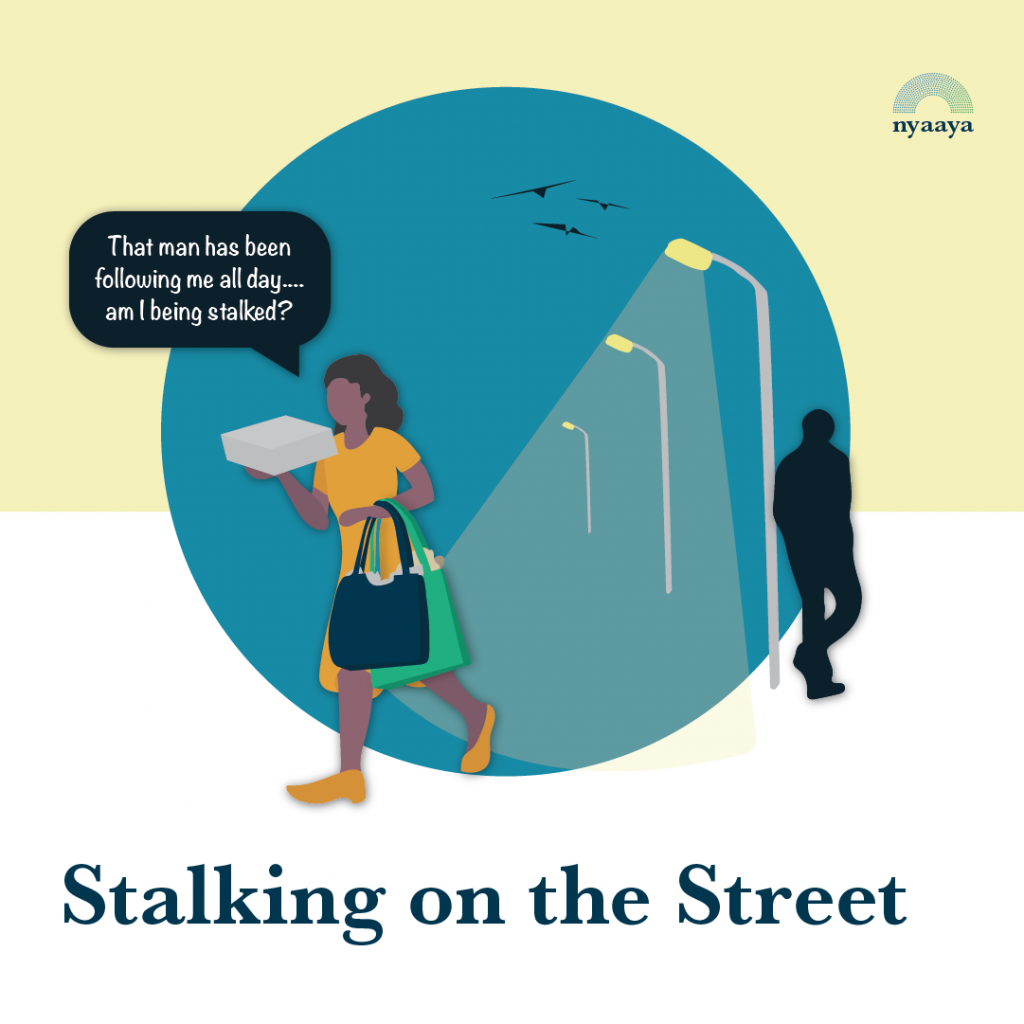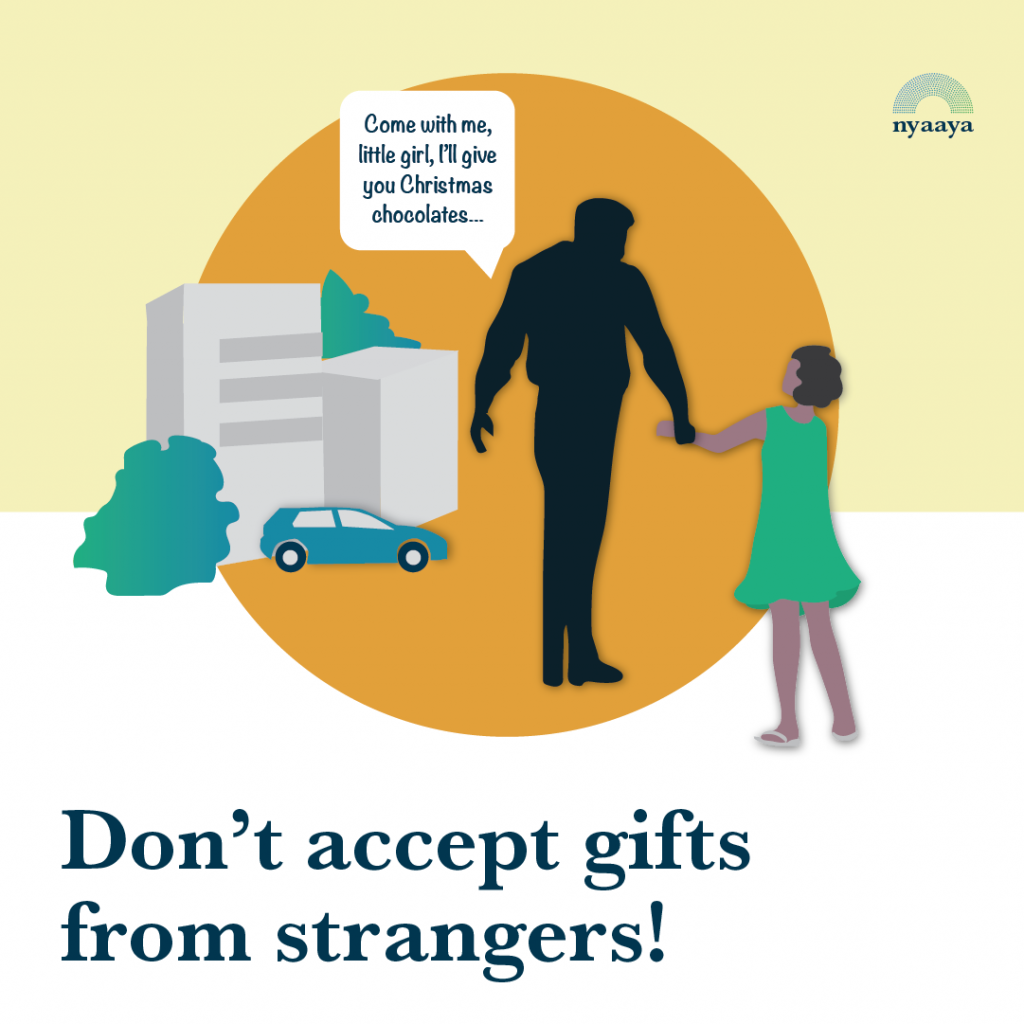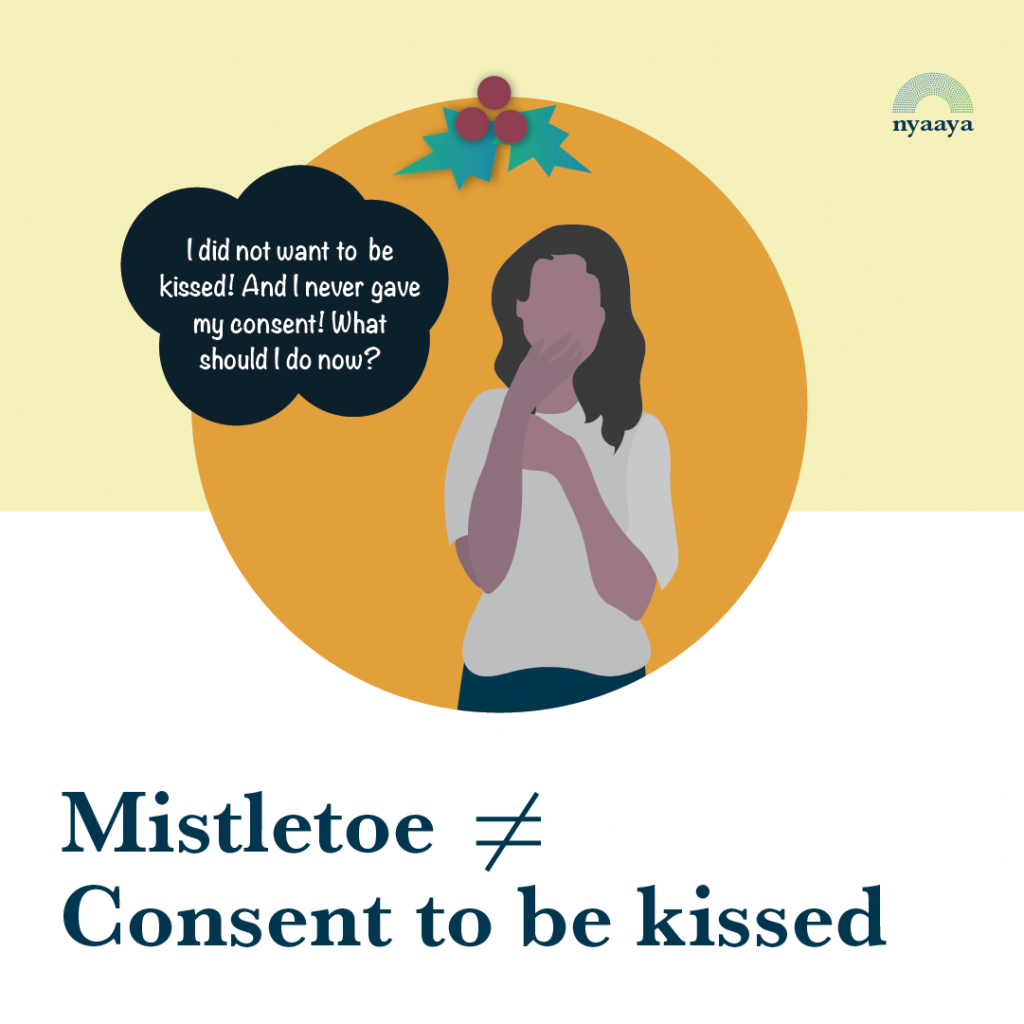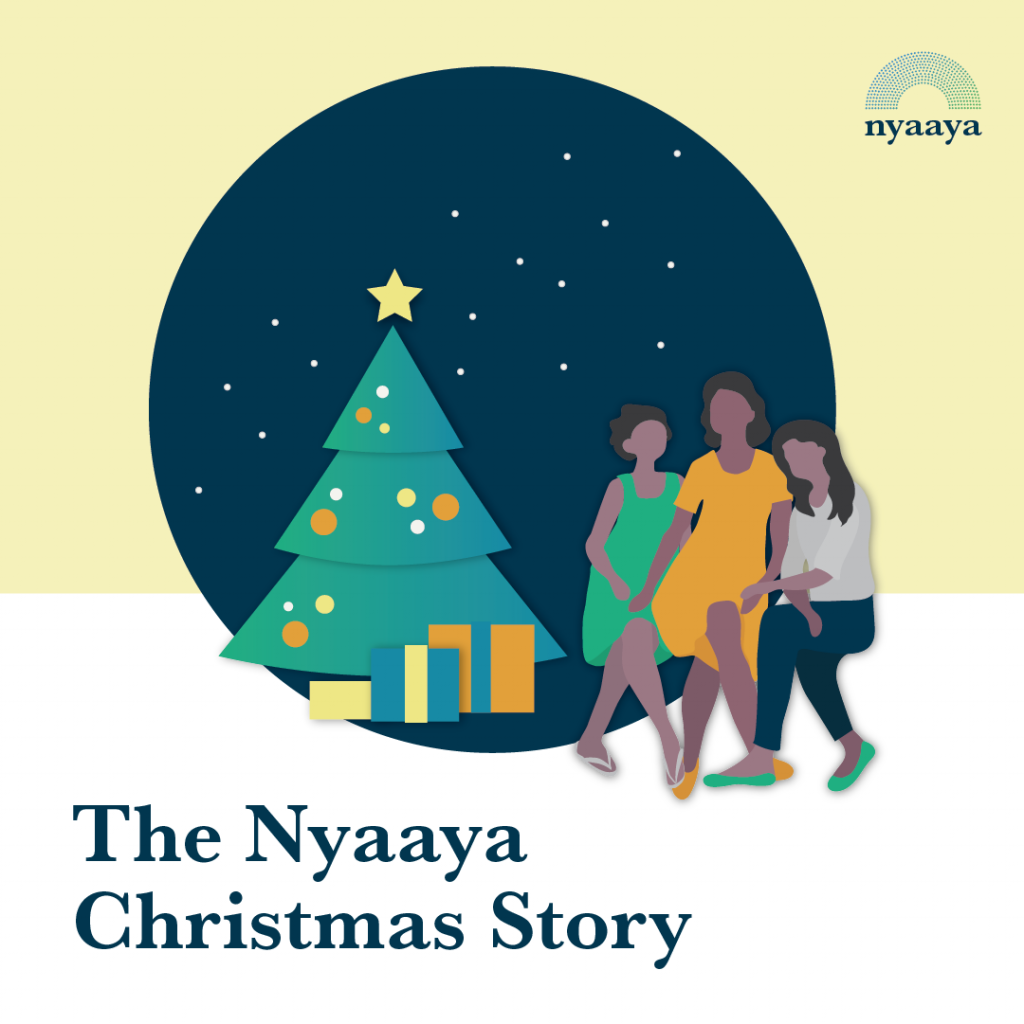On Christmas, Nyaaya takes you through the journey of the Maria Family during the holiday season. Alice, is the strong mother of two beautiful daughters, Amaya and Anne. Amaya is a dreamer. She is 10 years old and she can’t wait to grow up. Anne on the other hand is a realist. She works in a law firm and wishes she could be a kid again. The three of them face many challenges living alone in a suburban town in India but they always know they have each other to count on at the end of the day.
As the year comes to an end, they sit down together and reflect on how tough their year was with the pandemic bringing everyone’s lives to a standstill.
A Shopping Run
Amaya can’t understand why she has to wait to open all the gifts hidden in the closet. Impatiently, she works up the courage to ask her mother whether she can skip school to open her gifts. ‘Patience is a virtue, Amaya. Go to school!’ says Alice. She, on the other hand, is busy making a Christmas shopping list for a massive feast with her relatives. It had been so long since she met everyone. She was excited, yet very nervous. After sending Amaya to school, she locks the door and steps out to the shopping market which is across the street.


After gathering all the supplies, she carries the heavy bags slowly and carefully. From the corner of her eye, she spots a man watching her while smoking a cigarette.
‘It’s nothing’, she thought. After crossing the street, she quickly looks at the man again. He is not only watching her, this time he is following her into her apartment complex. Alice was used to the constant leering from all the men on the street but she was unprepared for a situation like this. She kept turning her head and by the time she’s climbing up the stairs, she confirms that he is definitely following her. She runs up the stairs and goes straight to her neighbours apartment. Her neighbour was a retired government banker who lived alone. As soon as he opened the door, she rushed in and locked the door behind her. Her plan was to mislead the man following her, so that he does not know where she lives. She kept peeping through the keyhole and after confirming that he left, she ran back to the apartment and dialed 1091 – the Women’s Helpline Number. After telling the helpline authorities what happened, she felt relieved that they would look into it. Anne rushes home from work and hugs her mother. ‘Stalking is a serious crime in India, and I’m glad you called the police Mama’, she says. Anne knows the seriousness of such crimes. She has worked on multiple cases before where the stalking incidents turn violent. Hugging her mother tightly, she comforts her and tells her that everything is going to be okay.
Waiting for Santa
Amaya was waiting for Santa to come down the chimney to give gifts to her. She was a good girl all year, she thought to herself. She hummed the tune,
‘You better watch out
You better not cry
You better not pout
I’m telling you why
Santa Claus is coming to town
He’s making a list,
He’s checking it twice,
He’s gonna find out who’s naughty or nice
Santa Claus is coming to town
He sees you when you’re sleeping
And he knows when you’re awake
He knows if you’ve been bad or good
So be good for goodness sake’
Anne walks in to tuck Amaya into bed. The song also gets stuck in her head on loop and they both sing it out loud. Anne thinks to herself, ‘The lyrics of this song are really weird. He sees you when you’re sleeping? He knows when you’re awake? Santa sounds like a voyeur.’ Amaya is slowly getting impatient as she expects Santa to come down their chimney. ‘We don’t even have a chimney, Amaya’ says Anne jokingly. Amaya is visibly upset as she worries about how Santa will enter her house. Anne can’t stop laughing at this. She tells Amaya, ‘The only way Santa can come in our house is through the front door or window and if he does that, he’s trespassing!’. Amaya is tired of her sister and her jokes. She decides to close her eyes and wait for Santa.
The Big Feast
It’s Christmas and all the relatives are at the Maria Family home. Amaya, Anne and Alice are glad to see some new faces after so long! Before the feast, Amaya’s uncle, David, takes her to the park nearby where Amaya runs towards the swings. After playing for a bit, Amaya sees a Kulfi seller moving around ringing the bell on his bicycle. Seeing the twinkle in her eye, David tells her not to move from the swings and runs across the street to buy her ice cream.


When he turns around holding the ice cream, he sees Amaya holding hands and walking away with a man.
David runs after them and pulls Amaya away from the stranger’s tight grip. He yells for help and the neighbours rush in to catch the stranger. They call 100 and the police come to take a statement from David who was there witnessing the incident. They also kindly asked Amaya a few questions but she was too upset to answer. They took the stranger into custody and went away in their jeep. David asked Amaya why she walked away with a strange man and she told him that he told her that he would buy her candy if she went with him. David knew the reality of the stranger’s intentions. Sexual harassment of children is a crime where the perpetrator could even get the death penalty. Very patiently, he told Amaya to always keep an eye out for strangers and call for help in such dangerous situations. They walked back into the house, where a big feast awaited them.
Mistletoe Mishap
Anne runs inside the house looking for her mother. She falls into her mothers arms, crying her heart out. ‘What happened’ asks Alice. Anne tells her the story of how her colleague kissed her during the christmas party without asking her. ‘When I asked him how he could kiss me out of the blue, he told me that during Christmas anyone who stands under a mistletoe is asking for a kiss’, Anne wailed. She is worried about filing a complaint with the Internal Committee in her office as the colleague is a well respected employee in the firm. She overthinks about her reputation, her work, her job, whether people will believe her and whether she will be fired for complaining against him.


Alice watching her daughter suffer, told Anne that she should be brave and stand up for herself.
‘He could do this to you again or do this to other women in your office’, Alice politely points out. Anne takes a deep breath and dials the number of the Internal Committee member on her phone. It was only a few years back that her office setup the policy for Sexual harassment at the workplace. She was glad that she had an avenue to complain in her office instead of going to the police. In the following days, she confidently, talked to the people in her office and took steps to address the sexual harassment she faced from her colleague.


The Maria Family, Amaya, Anne and Alice, being a family of 3 women, face many instances of harassment or worries throughout their lives.
On this journey, we see how they help themselves by understanding the law and by taking action. Most importantly, they show us how important support is, as scary incidents take a toll on a person physically, emotionally or mentally. This Christmas lets learn from the Maria family, the importance of love, law and support.



Leave a Comment